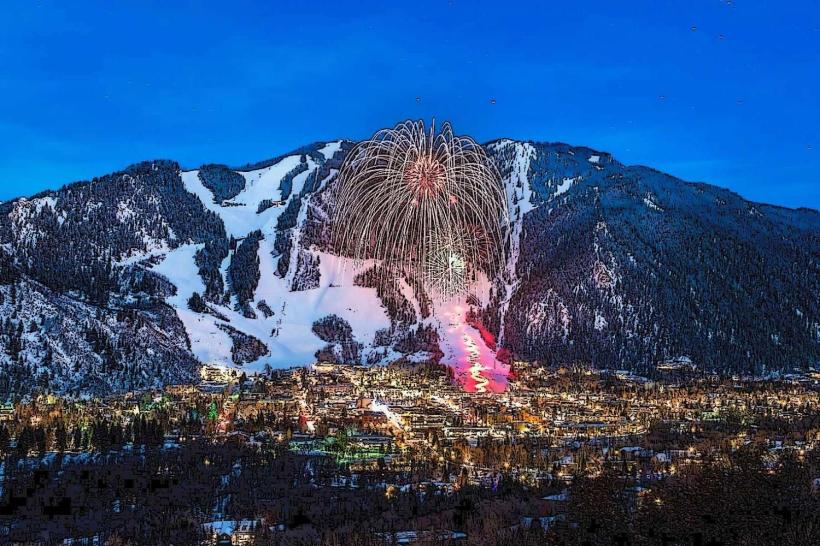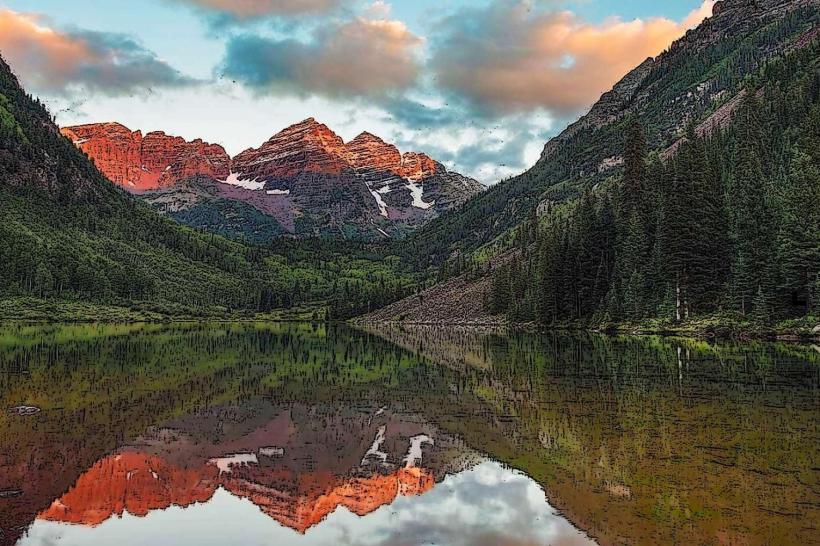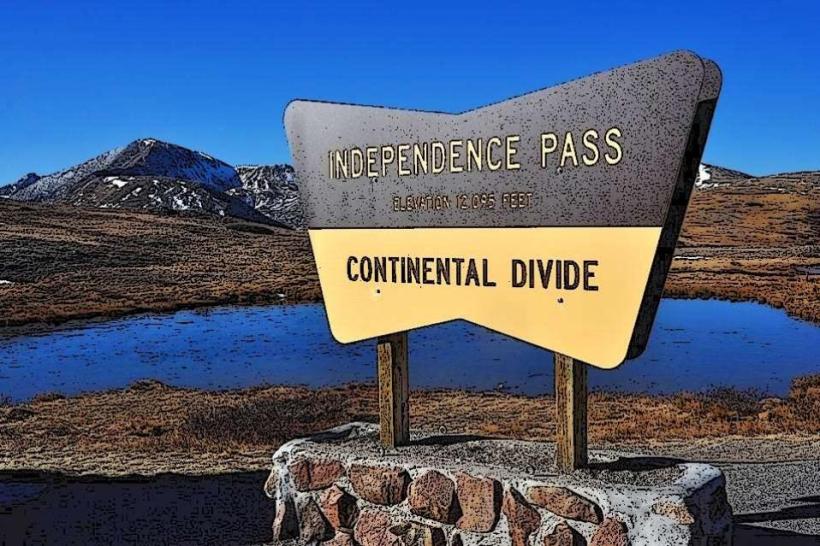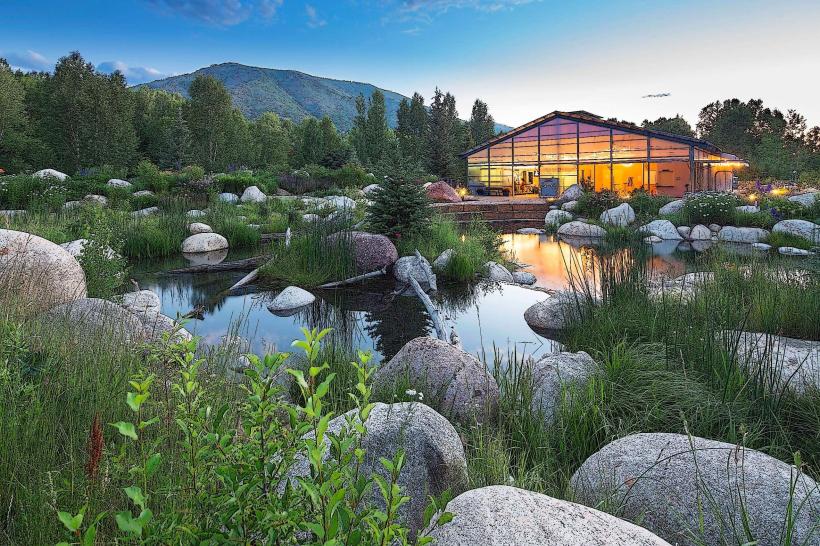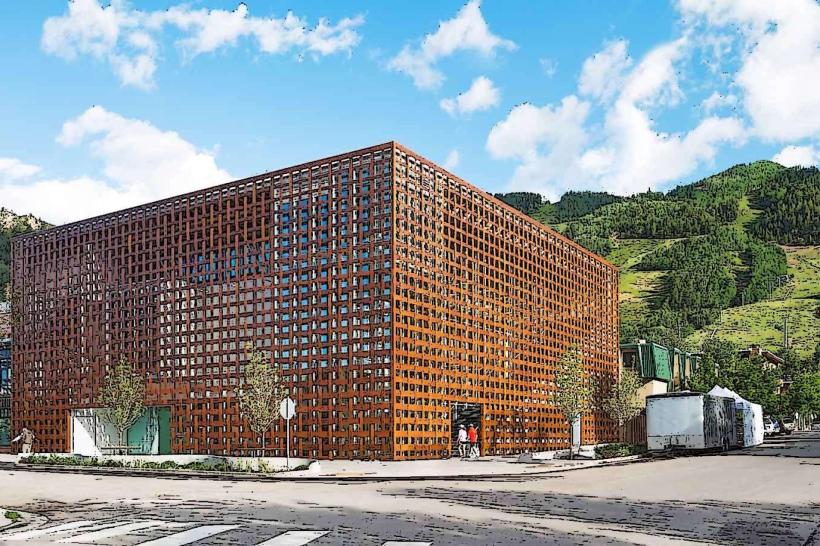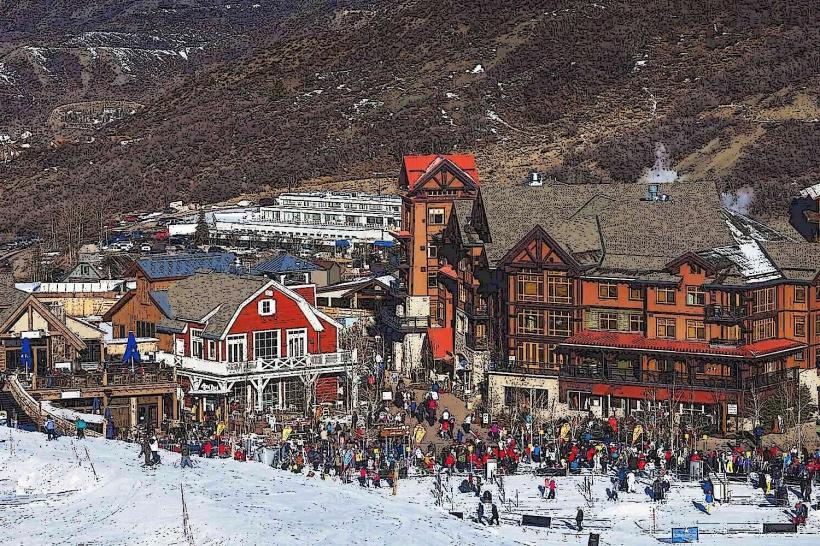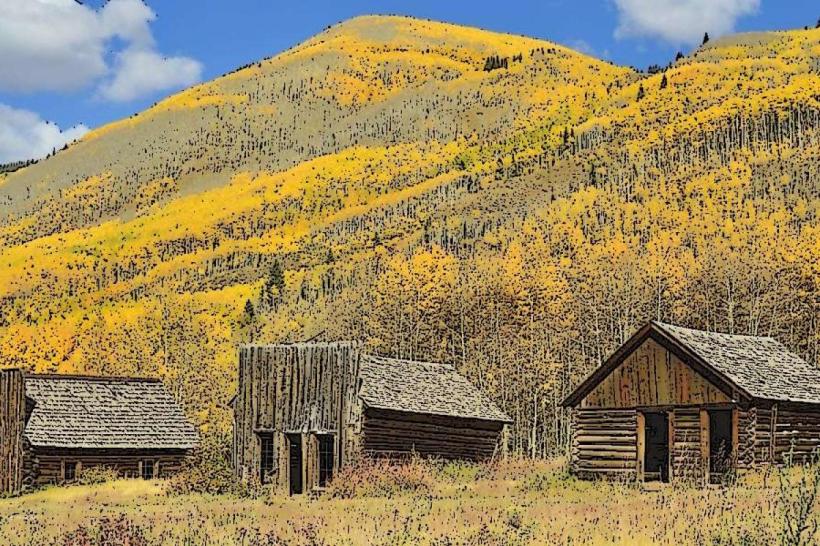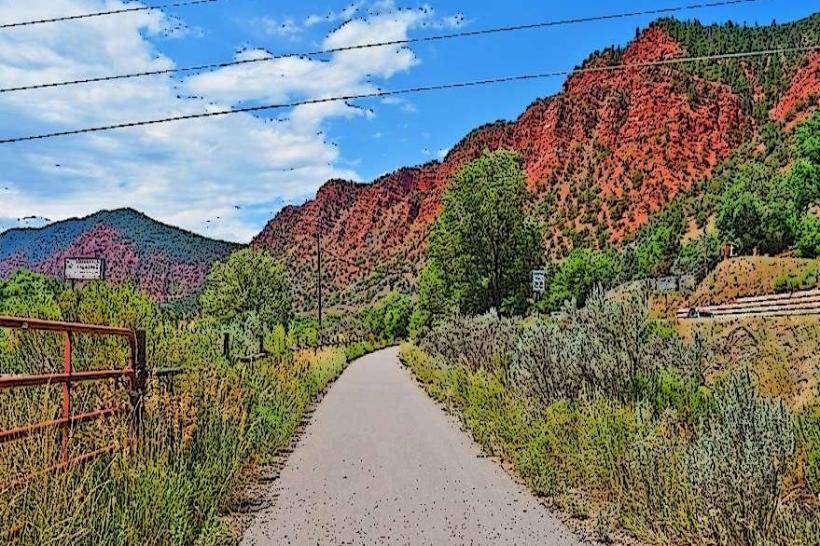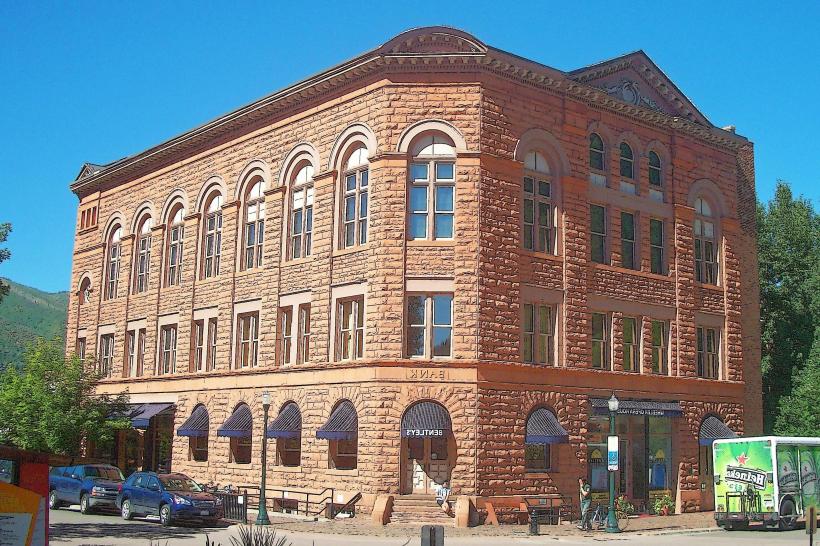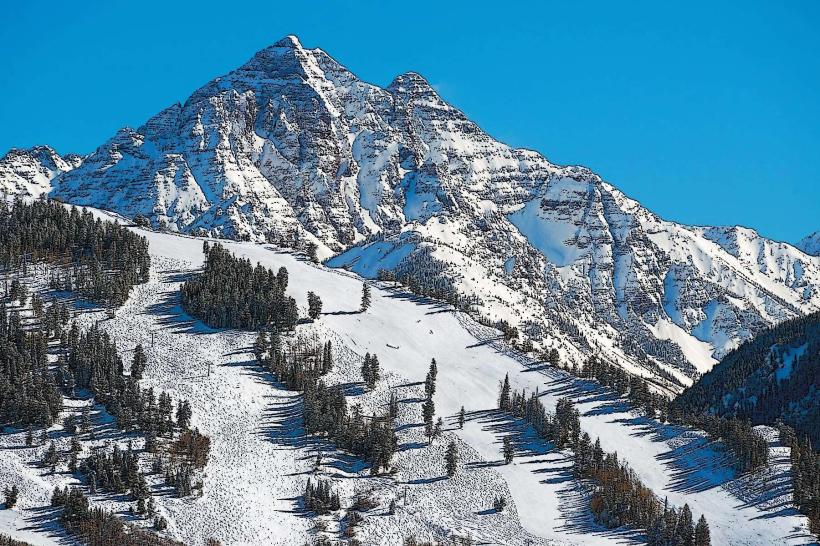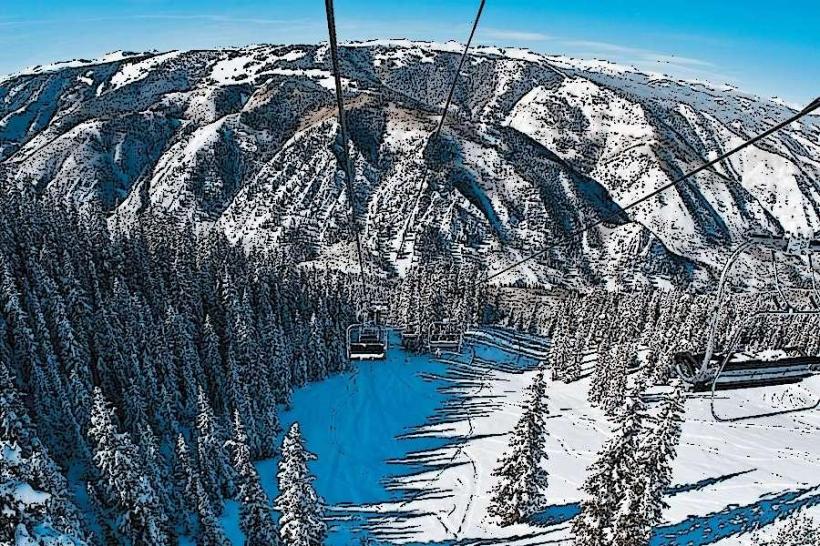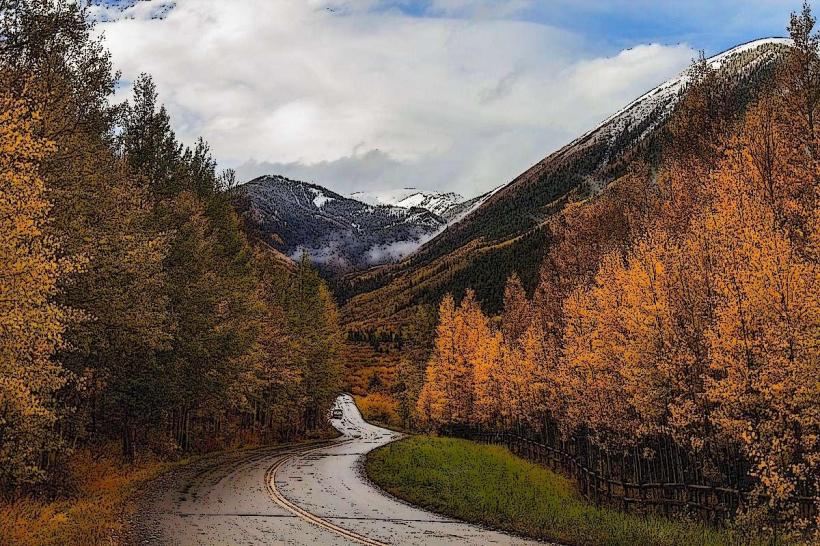Information
City: AspenCountry: USA Colorado
Continent: North America
Aspen, USA Colorado, North America
Aspen is the home rule city and county seat of Pitkin County, located in a remote enclave of the Sawatch Range and Elk Mountains along the Roaring Fork River. It is defined by its transition from a 19th-century silver mining powerhouse to a global epicenter of "glitzy" luxury, high-altitude intellectualism, and the "Aspen Idea"-the cultivation of mind, body, and spirit.
Historical Timeline
Inhabited for over 800 years by the Ute Nation, who used the valley as a summer hunting ground. Primary governance eras include its 1879 founding as "Ute City" during the Colorado Silver Boom and its 1881 incorporation. A critical historical event was the Panic of 1893, which caused the silver market to collapse and triggered "The Quiet Years," a half-century of population decline. The mid-20th century revival was catalyzed by Walter and Elizabeth Paepcke, who founded the Aspen Institute (1949) and developed the ski resort alongside 10th Mountain Division veterans. In the 21st century, Aspen has become the most expensive real estate market in the U.S. per square foot.
Demographics & Population
The permanent population is approximately 6,500, though it surges to over 27,000 during peak winter and summer seasons. The demographics are White (84%), Hispanic or Latino (11%), Asian (3%), and Black (1%). The economy is driven by ultra-luxury tourism, real estate, and high-level non-profit intellectual institutes.
Urban Layout & Key Districts
Aspen maintains a compact, walkable urban grid at 7,908 feet, centered on the base of Aspen Mountain.
Core / Downtown: A high-density commercial district featuring luxury boutiques (Prada, Gucci), the Hyman Avenue pedestrian mall, and the Silver Queen Gondola base.
West End: A prestigious residential district known for quiet, tree-lined streets and meticulously preserved Victorian-era homes.
The Hunter Creek Area: A residential zone to the north offering access to popular hiking trails and more "moderate" (by Aspen standards) housing.
Red Mountain: Often called "Billionaire's Mountain," this area overlooks the city and contains the most expensive residential estates in the world.
Roaring Fork River Corridor: A scenic natural boundary providing a greenbelt of parks and multi-use trails through the city.
Top City Landmarks
Maroon Bells: Located 16 km southwest; these two 14,000-foot peaks are the most photographed mountains in North America.
The Stanley Hotel (Hotel Jerome): A historic 1889 landmark that has survived the silver crash and remains the social heart of the city.
Wheeler Opera House: A Victorian-era gem (1889) that hosts world-class performances, from jazz to comedy.
Aspen Art Museum: A non-collecting contemporary institution housed in a striking wooden-grid building designed by Shigeru Ban.
The John Denver Sanctuary: A scenic park along the river featuring engraved stones with lyrics and perennial gardens honoring the singer.
Silver Queen Gondola: Transports visitors from downtown to the 11,212-foot summit of Aspen Mountain (Ajax) in under 15 minutes.
Transportation Network
Movement is highly efficient and focused on "Ditching the Car." The Roaring Fork Transit Authority (RFTA) provides a robust, free bus system within town and to the four ski mountains. The Downtowner offers free electric shuttle service door-to-door in the core. The city is accessed via Highway 82 (Independence Pass is closed in winter). Commercial air service is via Aspen/Pitkin County Airport (ASE), known for its challenging approach and high private jet volume.
Safety & "Red Zones"
The general safety level is very high. Property crime is low but present during high-occupancy seasons. There are no designated "red zones." Environmental hazards include altitude sickness, extreme UV intensity, and the frequent presence of black bears in residential areas-strict "bear-proof" trash laws are enforced.
Digital & Financial Infrastructure
Internet speeds average 600+ Mbps with fiber available through the City of Aspen and private providers. Main mobile carriers are Verizon and AT&T. Card acceptance is universal, and digital payments are the standard. ATMs are concentrated in the Core.
Climate & Air Quality
Temperatures range from -12°C to 2°C in winter and 10°C to 26°C in summer. The city enjoys 300 days of sunshine annually. Air quality is exceptionally high, though the city is aggressive about monitoring wood-burning stove emissions to maintain clarity.
Culture & Social Norms
The standard tipping percentage is 20–30% in high-end venues. A "Polished-Athletic" greeting is standard. Dress codes are "Aspen-Casual" (designer winter gear and high-end cowboy boots). The city is culturally defined by the "Aspen Idea", the Winter X Games, and the summer Aspen Ideas Festival.
Local Cost Index
1 Espresso: $6.00 (USD)
1 Standard Lunch: $30.00 (USD)
1 Aspen Mountain Lift Ticket: $220.00–$280.00.
Nearby Day Trips
Snowmass Village, CO: (15 km west; the largest of the four ski areas).
Glenwood Springs, CO: (65 km northwest; home to the world's largest hot springs pool).
Ashcroft Ghost Town: (18 km south; a well-preserved silver mining ghost town).
Facts & Legends
Aspen was the first city in Colorado to have electric lights (1885). Historically, it produced one-sixth of the world’s silver before the 1893 crash. A local legend involves the "Ghost of the Hotel Jerome," a "Water Boy" rumored to haunt the pool area. Another legend concerns the "Secret Shrines" hidden in the trees of Aspen Mountain-unauthorized memorials dedicated to figures like Hunter S. Thompson and Elvis Presley.

